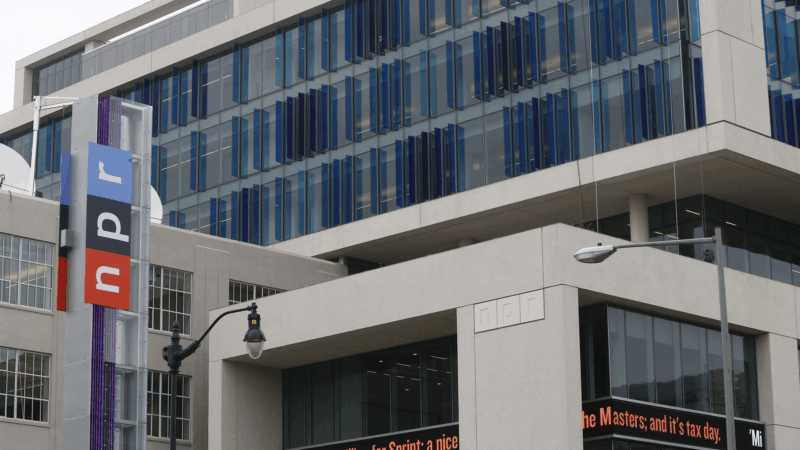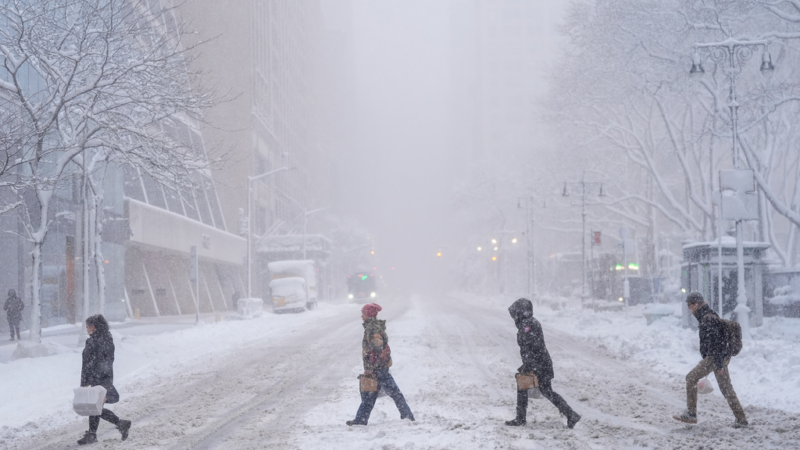Trump orders end to federal funding for NPR and PBS
President Trump signed an executive order Thursday directing the Corporation for Public Broadcasting’s board of directors to “cease federal funding for NPR and PBS,” the nation’s primary public broadcasters. Trump contends that news coverage by NPR and PBS contains a left-wing bias. The federal funding for NPR and PBS is appropriated by Congress.
The executive order, like many that have been signed by the president, could be challenged in court.
“Which viewpoints NPR and PBS promote does not matter,” the executive order says. “What does matter is that neither entity presents a fair, accurate or unbiased portrayal of current events to tax-paying citizens.”
On social media platforms, Trump recently blasted the two primary public broadcasting networks, posting in all caps: “REPUBLICANS MUST DEFUND AND TOTALLY DISASSOCIATE THEMSELVES FROM NPR & PBS, THE RADICAL LEFT ‘MONSTERS’ THAT SO BADLY HURT OUR COUNTRY!”
In the executive order, Trump instructs the CPB and executive branch departments and agencies to cease direct and indirect funding of NPR and PBS.
“The CPB Board shall cancel existing direct funding to the maximum extent allowed by law and shall decline to provide future funding,” the order says.
NPR’s President and CEO Katherine Maher defended coverage and addressed the need for funding in a recent interview on All Things Considered.
“I think that it’s important for public media to be able to continue to be relevant in a time where there is a lot of coverage of different issues and areas of interest,” she said.
NPR did not immediately respond to requests for comment on the executive order.
The leaders of NPR and PBS testified at a House oversight committee hearing in late March on allegations of ideological bias in public broadcasting.
Maher was assailed for her past political postings on social media and the network’s news judgment almost entirely based on tweets and stories that preceded her March 2024 arrival at the network by years.
PBS’s Paula Kerger found herself queried about a video involving a performer in drag singing a variation on a children’s song for a young audience. (Kerger testified that the video was posted on the website of PBS’s New York City member station and never aired on television.)
Federal funding for public media flows through the congressionally chartered Corporation for Public Broadcasting. Congress allocated $535 million for the CPB for the current fiscal year – an amount affirmed in a recent stop-gap bill passed by the Republican-controlled U.S. House and Senate.
The CPB’s budget is approved by Congress on a two-year cycle in large part to insulate it from political pressures; according to the Corporation for Public Broadcasting, Congress has fully funded it through Sept 30, 2027.
At the hearing in late March, heads of both networks spoke of the mission to provide nonpartisan news and programming to the American public, without charge.
NPR receives about 1% of its funding directly from the federal government, and a slightly greater amount indirectly; its 246 member institutions, operating more than 1,300 stations, receive on average 8% to 10% of their funds from CPB.
By contrast, PBS and its stations receive about 15% of their revenues from CPB’s federal funds.
Most of the funds for public media go to local stations; and most to subsidize television, which is more expensive than radio.
The networks say they have been encouraged repeatedly by the agency and Congress to develop private financial support and have worked assiduously for years with the FCC to ensure that its content falls within FCC guidelines.
PBS offers a heavy amount of educational fare; NPR relies more on news and music. Both provide locally grounded content and reach more than 99% of the population, at no cost. And in many states and communities, the stations serve as a key component of emergency and disaster response systems.
President Trump opened up a new front in his assault on public media on Monday, asserting that he was removing three of the five board members of the Corporation for Public Broadcasting. The corporation sued Trump on Tuesday morning in response, pointing to federal law and a U.S. Supreme Court ruling to contend that he does not have the power to take these actions.
Last month, the White House said it was going to send a request to Congress for a rescission of funding for NPR and PBS.
Additionally, the Federal Communications Commission has launched an investigation of NPR and PBS, saying it appears that their corporate underwriting spots violate laws banning commercial advertisements.
Disclosure: This story was reported and written by NPR Media Correspondent David Folkenflik and edited by Deputy Business Editor Emily Kopp, Managing Editor Gerry Holmes and Managing Editor Vickie Walton-James. Under NPR’s protocol for reporting on itself, no corporate official or news executive reviewed this story before it was posted publicly.
Kate Hudson on regret, rom-coms and finding a role that hits all the notes
Hudson always wanted to sing, but feared it would derail her acting career. Now she's up for an Oscar for her portrayal of a hairdresser who performs in a Neil Diamond tribute band in Song Sung Blue.
A powerful winter storm is roiling travel across the northeastern U.S.
Forecasters called travel conditions "extremely treacherous" and "nearly impossible" in areas hit hardest by the storm, and air and train traffic is at a standstill in many parts of the region.
U.K. arrests ex-ambassador to the U.S. on suspicion of misconduct over Epstein ties
Police have arrested Peter Mandelson, a veteran Labour Party politician who served as British ambassador to the U.S., as part of an investigation into his ties with Jeffrey Epstein.
What NPR reporters will remember most about these Winter Olympics
NPR's reporters on the ground in Italy reflect on a far-flung, jam-packed Winter Olympics.
In the shadow of the Olympics, migrants search for a welcome in Milan
As Italy cracks down on migration, Milan takes a different path — offering shelter and integration to asylum seekers even as the central government tightens borders and funds deterrence abroad.
Trump to raise global tariffs. And, most say the state of the union is weak, poll says
President Trump says he is raising global tariffs to 15%. And ahead of the president's address tomorrow, most Americans say the state of the union is not strong, according to an NPR poll.







